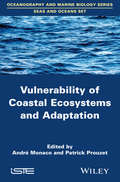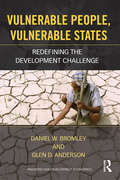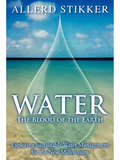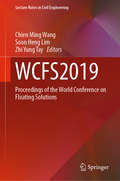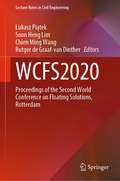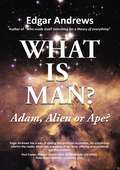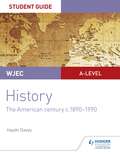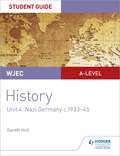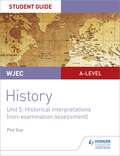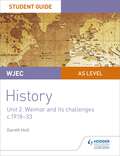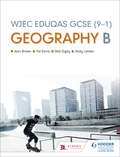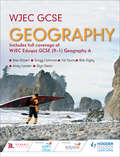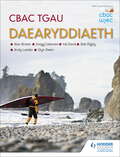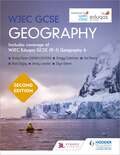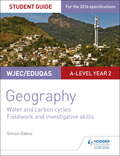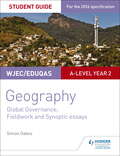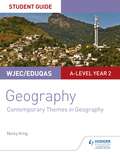- Table View
- List View
Vulnerability of Coastal Ecosystems and Adaptation
by Patrick Prouzet André MonacoThe vulnerability of socio -ecosystem combines the probability of exposure to natural or anthropogenic pressure, sensitivity and resilience. This book presents a systemic view of the diversity of pressures and impacts produced by climate change and human actions. Erosion of biodiversity by changing ocean chemistry, the intensification of global change raises the problem of the adaptation of living resources.
Vulnerable People, Vulnerable States: Redefining the Development Challenge (Priorities For Development Economics Ser.)
by Daniel Bromley Glen AndersonOver 5 decades of economic and technical assistance to the countries of Africa and the Middle East have failed to improve the life prospects for over 1.4 billion people who remain vulnerable. Billions of dollars have been spent on such assistance and yet little progress has been made. Persistent hunger and hopelessness threaten more than individuals and families. These conditions foster political alienation that can easily metastasize into hostility and aggression. Recent uprisings in the Middle East are emblematic of this problem. Vulnerable people give rise to vulnerable states. This book challenges the dominant catechism of development assistance by arguing that the focus on economic growth (and fighting poverty) has failed to bring about the promised "convergence." Poor people and poor countries have clearly not closed the gap on the rich industrialized world. Pursuing convergence has been a failure. Here we argue that development assistance must be reconstituted to focus on creating economic coherence. People are vulnerable because the economies in which they are embedded do not cohere. The absence of economic coherence means that economic processes do not work as they must if individual initiative is to result in improved livelihoods. Weak and vulnerable states must be strengthened so that they can become partners in the process of creating economic coherence. When economies do not cohere, countries become breeding grounds for localized civil conflicts that often spill across national borders.
WATER: Exploring Sustainable Water Management for the New Millennium
by Allerd Stikker"Allerd Stikker has always reminded me of Alexis de Tocqueville, who would have chosen to study the problem surrounding water rather than the American democracy. He has the same insatiable curiosity, the same energy, same passion, same ease in mixing analysis with intuition, the capacity to draw together different cultures, the same capacity to listen and to dialogue with those who reason from different starting blocks. "Water, the Blood of the Earth is the outcome of reflection and action of a cosmopolitan who has remained loyal to his native land, mixing some European thinking of the Age of Enlightenment with some futuristic viewpoints." -Charles Louis de Maudhuy, advisor to the chairman, Veolia Water "Lack of access to clean and sufficient water in many parts of the world, especially in Asia and Africa, will be a major issue in the coming decades. "This book presents an overall view on the diversity of problems and solutions, based on the author's involvement in water-related projects. Over the course of the years I have followed some of these projects with interest; they inspire us to take concrete actions." -Antony Burgmans, former chairman, Unilever "In this book Allerd describes his convincing views on desalination solutions for local and urban clean water shortages as well as his deeply felt findings on the spiritual meanings of water, all assembled on a 20 years' journey on which I was lucky to travel along." -Leonor Lindner
WCFS2019: Proceedings of the World Conference on Floating Solutions (Lecture Notes in Civil Engineering #41)
by Chien Ming Wang Soon Heng Lim Zhi Yung TayThis book highlights recent research and developments in floating structures on rivers, lakes, seas and oceans for energy harvesting, aquaculture and farming, leisure activities, infrastructure, industrial plants, real estate and cities, with a focus on sustainably living, relaxing and working offshore. Bringing together international experts and leaders, from both industry and academia it reviews and discusses ocean space utilization, and offers an ideal platform for those wanting to establish new collaborations on floating structure projects.
WCFS2020: Proceedings of the Second World Conference on Floating Solutions, Rotterdam (Lecture Notes in Civil Engineering #158)
by Chien Ming Wang Soon Heng Lim Rutger de Graaf-van Dinther Łukasz PiątekThis book highlights state-of-the-art research findings on floating developments in both inland and coastal waters with focus on living, recreation and working offshore. It includes six themes: (1) business case and real estate development, (2) spatial planning and architecture, (3) food and energy production, (4) ecological impact and nature-based solutions, (5) governance and social impact and (6) design and engineering of (infra)structures. The book presents key issues addressed when utilizing water space. It gives an overview of findings and discussions from the world’s leading experts from the industry, policymakers, entrepreneurs, researchers and identifies new opportunities as well as fosters collaboration on floating projects for a more climate-adaptive, socially inclusive, sustainable and better world.
WHAT IS MAN?: Adam, Alien or Ape?
by Edgar AndrewsIn 1906, American humorist Mark Twain published a sixty-page essay entitled “What is man?” Consisting of an interminable dialogue between a senior citizen (who believes that man is just a machine) and a young man (who believes nothing in particular but is open to persuasion), it wasn’t one of his finest books. But at least he tried. Authors since then seem to have avoided the subject like the plague, often tackling the respective roles of men and women in society but seldom asking deeper questions about what it means to be human. When the psalmist asked, “What is man?” (Psalm 8 v.4) he was, I think, seeking an altogether more profound answer.Avoidance of the subject is all the more strange because there has never been a time like our own when curiosity about human origins and destiny has been greater, or the answers on offer more hotly disputed. It’s a safe bet that any attempt to give the “big picture” on the origin, nature and specialness of mankind will be contentious —which might explain why writers have generally fought shy of it. Yet at heart it is the question most of us really do want answered, because the answer defines that precious thing we call our identity, both personally and as a race.The Psalmist did, of course, offer his own answer three millennia ago. Man, he claimed, was created by God for a clearly defined purpose — to exercise dominion over planet earth and (by implication) to ultimately share something of the glory of the divine nature. The rest, as they say, is history, but it’s not a happy tale. As Mark Twain says in another essay; “I can’t help being disappointed with Adam and Eve”. Not surprisingly, then, a large proportion of humanity today are looking for alternative solutions, accepting the challenge of the Psalmist’s question without embracing the optimism of his answer.In this book we are going to consider the alternative solutions on offer by considering what it means to be human against the backgrounds of cosmology (man’s place in the universe), biology (man’s place in the animal kingdom), and psychology (man’s consciousness and mind). Finally, we return to the biblical context, arguing that the Psalmist got it right after all.Don’t let the science-sounding stuff put you off. Like its popular prequel, “Who made God? Searching for a theory of everything”, this book is written with a light touch in a reader-friendly and often humorous style. It is intended specifically for the non-expert, with homely verbal illustrations designed to explain and unpack the technicalities for the lay-person. As Dr. Paul Copan (Pledger Family Chair of Philosophy and Ethics, Palm Beach Atlantic University) says, "Edgar Andrews has a way of making the profound accessible. His scholarship informs the reader about key questions of our time, offering wise guidance and illumination."
WJEC A-level History Student Guide Unit 3: The American century c.1890-1990
by Haydn DaveyExam board: WJECLevel: AS/A-levelSubject: HistoryFirst teaching: September 2015First exams: Summer 2016 (AS); Summer 2017 (A-level)Build, reinforce and revise the historical knowledge and exam skills required for WJEC AS/A-level History.Matched to the 2016 specification for Wales, this study guide contains clear content summaries and annotated sample answers to exam questions.- Concisely covers the key issues and content in the specification, breaking the Unit down into manageable chunks- Consolidates understanding with regular knowledge-check questions, plus useful tips- Builds the analytical and evaluative skills that students need to succeed in AS/A-level History- Improves students' exam technique, providing sample student answers to past paper questions, with commentary to explain the number of marks awarded- Helps students to learn the content throughout the course, study independently and revise for their exams
WJEC A-level History Student Guide Unit 4: Nazi Germany Epub
by Gareth HoltExam board: WJECLevel: AS/A-levelSubject: HistoryFirst teaching: September 2015First exams: Summer 2016 (AS); Summer 2017 (A-level)Build, reinforce and revise the historical knowledge and exam skills required for WJEC AS/A-level History.Matched to the 2016 specification for Wales, this study guide contains clear content summaries and annotated sample answers to exam questions.- Concisely covers the key issues and content in the specification, breaking the Unit down into manageable chunks- Consolidates understanding with regular knowledge-check questions, plus useful tips- Builds the analytical and evaluative skills that students need to succeed in AS/A-level History- Improves students' exam technique, providing sample student answers to past paper questions, with commentary to explain the number of marks awarded- Helps students to learn the content throughout the course, study independently and revise for their exams
WJEC A-level History Student Guide Unit 4: Nazi Germany c.1933-1945
by Gareth HoltExam board: WJECLevel: AS/A-levelSubject: HistoryFirst teaching: September 2015First exams: Summer 2016 (AS); Summer 2017 (A-level)Build, reinforce and revise the historical knowledge and exam skills required for WJEC AS/A-level History.Matched to the 2016 specification for Wales, this study guide contains clear content summaries and annotated sample answers to exam questions.- Concisely covers the key issues and content in the specification, breaking the Unit down into manageable chunks- Consolidates understanding with regular knowledge-check questions, plus useful tips- Builds the analytical and evaluative skills that students need to succeed in AS/A-level History- Improves students' exam technique, providing sample student answers to past paper questions, with commentary to explain the number of marks awarded- Helps students to learn the content throughout the course, study independently and revise for their exams
WJEC A-level History Student Guide Unit 4: Nazi Germany c.1933-1945
by Gareth HoltExam board: WJECLevel: AS/A-levelSubject: HistoryFirst teaching: September 2015First exams: Summer 2016 (AS); Summer 2017 (A-level)Build, reinforce and revise the historical knowledge and exam skills required for WJEC AS/A-level History.Matched to the 2016 specification for Wales, this study guide contains clear content summaries and annotated sample answers to exam questions.- Concisely covers the key issues and content in the specification, breaking the Unit down into manageable chunks- Consolidates understanding with regular knowledge-check questions, plus useful tips- Builds the analytical and evaluative skills that students need to succeed in AS/A-level History- Improves students' exam technique, providing sample student answers to past paper questions, with commentary to explain the number of marks awarded- Helps students to learn the content throughout the course, study independently and revise for their exams
WJEC A-level History Student Guide Unit 5: Historical Interpretations (non-examination assessment)
by Phil StarExam board: WJECLevel: AS/A-levelSubject: HistoryFirst teaching: September 2015First exams: Summer 2016 (AS); Summer 2017 (A-level)Maximise your chance of coursework success with this step-by-step guide to the WJEC A-level History NEA.- Explains how to understand, approach and successfully answer the question/essay title, with tips to highlight important information and common pitfalls- Develops students' skills in analysing and evaluating primary source material- Teaches students how to identify and test the validity of historical interpretations- Offers extensive advice on essay writing, including drafting an effective introduction and conclusion- Provides one complete example of the NEA with annotations/commentary that show how it could be improved- Keeps students on track as they complete activities that help to structure their progress
WJEC A-level History Student Guide Unit 5: Historical Interpretations (non-examination assessment)
by Phil StarExam board: WJECLevel: AS/A-levelSubject: HistoryFirst teaching: September 2015First exams: Summer 2016 (AS); Summer 2017 (A-level)Maximise your chance of coursework success with this step-by-step guide to the WJEC A-level History NEA.- Explains how to understand, approach and successfully answer the question/essay title, with tips to highlight important information and common pitfalls- Develops students' skills in analysing and evaluating primary source material- Teaches students how to identify and test the validity of historical interpretations- Offers extensive advice on essay writing, including drafting an effective introduction and conclusion- Provides one complete example of the NEA with annotations/commentary that show how it could be improved- Keeps students on track as they complete activities that help to structure their progress
WJEC AS-level History Student Guide Unit 2: Weimar And Its Challenges Epub
by Gareth HoltExam board: WJECLevel: AS/A-levelSubject: HistoryFirst teaching: September 2015First exams: Summer 2016 (AS); Summer 2017 (A-level)Build, reinforce and revise the historical knowledge and exam skills required for WJEC AS/A-level History.Matched to the 2016 specification for Wales, this study guide contains clear content summaries and annotated sample answers to exam questions.- Concisely covers the key issues and content in the specification, breaking the Unit down into manageable chunks- Consolidates understanding with regular knowledge-check questions, plus useful tips- Builds the analytical and evaluative skills that students need to succeed in AS/A-level History- Improves students' exam technique, providing sample student answers to past paper questions, with commentary to explain the number of marks awarded- Helps students to learn the content throughout the course, study independently and revise for their exams
WJEC AS-level History Student Guide Unit 2: Weimar and its challenges c.1918-1933
by Gareth HoltExam board: WJECLevel: AS/A-levelSubject: HistoryFirst teaching: September 2015First exams: Summer 2016 (AS); Summer 2017 (A-level)Build, reinforce and revise the historical knowledge and exam skills required for WJEC AS/A-level History.Matched to the 2016 specification for Wales, this study guide contains clear content summaries and annotated sample answers to exam questions.- Concisely covers the key issues and content in the specification, breaking the Unit down into manageable chunks- Consolidates understanding with regular knowledge-check questions, plus useful tips- Builds the analytical and evaluative skills that students need to succeed in AS/A-level History- Improves students' exam technique, providing sample student answers to past paper questions, with commentary to explain the number of marks awarded- Helps students to learn the content throughout the course, study independently and revise for their exams
WJEC Eduqas B GCSE Geography
by Alan Brown Bob Digby Val DavisHelp your students develop enquiring minds as they learn the geographical knowledge and skills they need through the enquiries of the new OCR B specification which include and up-to-date case studies, a wide range of activities and exam-style questions developed to support and stretch students of all abilities.- Supports students of all abilities through differentiated activities including scaffolded questions and extension questions.- Highlights opportunities for fieldwork throughout the book, and includes guidance on carrying out fieldwork.- Develops students' geographical skills including activities and clear explanations of how to use mathematical and statistical skills.- Helps students gain confidence for the exam with a variety of exam-style practice questions at different levels, with tips on how to approach them.
WJEC GCSE Geography
by Alan Brown Andy Leeder Gregg ColemanHelp your students develop enquiring minds as they learn the geographical knowledge and skills they need through the enquiries of the new OCR B specification which include and up-to-date case studies, a wide range of activities and exam-style questions developed to support and stretch students of all abilities.- Supports students of all abilities through differentiated activities including scaffolded questions and extension questions.- Highlights opportunities for fieldwork throughout the book, and includes guidance on carrying out fieldwork.- Develops students' geographical skills including activities and clear explanations of how to use mathematical and statistical skills.- Helps students gain confidence for the exam with a variety of exam-style practice questions at different levels, with tips on how to approach them.
WJEC GCSE Geography
by Alan Brown Andy Leeder Gregg ColemanEndorsed by WJECDevelop your students' subject knowledge and skills using in-depth topic coverage and developmental activities to create your own teaching pathway through the core and optional content in the 2016 specifications, with support at every stage from the authors of the bestselling WJEC Student Book.- Contains coherent coverage of every core and optional theme in a single volume, with clear explanations of key concepts throughout- Engages and challenges students of all abilities with an exciting, thematic approach, brought to life by Welsh, UK and international place references- Improves students' ability to interpret, analyse and evaluate geographical information through practical, skills-focused activities that involve data, maps and photographs- Boosts candidates' confidence approaching examination by providing numerous learning opportunities for each assessed theme- Enables effective differentiation with enquiry tasks designed to stretch higher-ability students and encourage independent research- Includes trusted guidance from the Field Studies Council on suggested human and physical fieldwork projects and methodologies, making it easier to address the revised fieldwork criteriaThis is a Welsh-language edition.
WJEC GCSE Geography Second Edition
by Alan Brown Bob Digby Andy Leeder Andy Owen Glyn Owen Val Davis Gregg ColemanDevelop your students' subject knowledge and skills using this second edition of the WJEC GCSE Geography student book. Featuring updated case studies, practice questions and clear presentation of key terms, this thoroughly revised edition provides students with the up-to-date knowledge they need to succeed at GCSE.- Contains coherent coverage of every core and optional theme in a single volume, with clear explanations of key concepts throughout- Engages and challenges students of all abilities with an exciting, thematic approach, brought to life by Welsh, UK and international place references- Improves students' ability to interpret, analyse and evaluate geographical information through practical, skills-focused activities that involve data, maps and photographs- Boosts candidates' confidence approaching examination by providing extensive practice questions for each assessed themeThis book also includes coverage of WJEC Geography A.
WJEC GCSE Geography Second Edition
by Alan Brown Bob Digby Andy Leeder Andy Owen Glyn Owen Val Davis Gregg ColemanDevelop your students' subject knowledge and skills using this second edition of the WJEC GCSE Geography student book. Featuring updated case studies, practice questions and clear presentation of key terms, this thoroughly revised edition provides students with the up-to-date knowledge they need to succeed at GCSE.- Contains coherent coverage of every core and optional theme in a single volume, with clear explanations of key concepts throughout- Engages and challenges students of all abilities with an exciting, thematic approach, brought to life by Welsh, UK and international place references- Improves students' ability to interpret, analyse and evaluate geographical information through practical, skills-focused activities that involve data, maps and photographs- Boosts candidates' confidence approaching examination by providing extensive practice questions for each assessed themeThis book also includes coverage of WJEC Geography A.
WJEC/Eduqas A-level Geography Student Guide 4: Water and carbon cycles; Fieldwork and investigative skills
by Simon OakesReinforce students' geographical understanding throughout their course; clear topic summaries with sample questions and answers help students improve their exam technique and achieve their best.Written by a teacher with extensive examining experience, this guide:- Helps students identify what they need to know with a concise summary of the topics examined at AS and A-level- Consolidates understanding through assessment tips and knowledge-check questions- Offers opportunities for students to improve their exam technique by consulting sample graded answers to exam-style questions- Develops independent learning and research skills- Provides the content students need to produce their own revision notes
WJEC/Eduqas A-level Geography Student Guide 4: Water and carbon cycles; Fieldwork and investigative skills
by Simon OakesExam board: WJECLevel: A-levelSubject: GeographyFirst teaching: September 2016First exams: Summer 2018 Reinforce students' geographical understanding throughout their course; clear topic summaries with sample questions and answers help students improve their exam technique and achieve their best.Written by a teacher with extensive examining experience, this guide:- Helps students identify what they need to know with a concise summary of the topics examined at AS and A-level- Consolidates understanding through assessment tips and knowledge-check questions- Offers opportunities for students to improve their exam technique by consulting sample graded answers to exam-style questions- Develops independent learning and research skills- Provides the content students need to produce their own revision notes
WJEC/Eduqas A-level Geography Student Guide 5: Change and challenges; 21st century challenges
by Simon OakesReinforce students' geographical understanding throughout their course; clear topic summaries with sample questions and answers help students improve their exam technique and achieve their best.Written by teachers with extensive examining experience, this guide:- Helps students identify what they need to know with a concise summary of the topics examined at AS and A-level- Consolidates understanding through assessment tips and knowledge-check questions- Offers opportunities for students to improve their exam technique by consulting sample graded answers to exam-style questions- Develops independent learning and research skills- Provides the content students need to produce their own revision notes
WJEC/Eduqas A-level Geography Student Guide 5: Global Governance: Change and challenges; 21st century challenges
by Simon OakesExam Board: WJEC, Eduqas Level: AS/A-level Subject: Geography First Teaching: September 2016 First Exam: Summer 2017Reinforce students' geographical understanding throughout their course; clear topic summaries with sample questions and answers help students improve their exam technique and achieve their best.Written by teachers with extensive examining experience, this guide:- Helps students identify what they need to know with a concise summary of the topics examined at AS and A-level- Consolidates understanding through assessment tips and knowledge-check questions- Offers opportunities for students to improve their exam technique by consulting sample graded answers to exam-style questions- Develops independent learning and research skills- Provides the content students need to produce their own revision notes
WJEC/Eduqas A-level Geography Student Guide 6: Contemporary Themes in Geography
by Nicky KingExam Board: WJEC/EduqasLevel: AS/A-levelSubject: GeographyFirst teaching: September 2016First exams: Summer 2017 (AS), Summer 2018 (A-level)Reinforce students' geographical understanding throughout their course; clear topic summaries with sample questions and answers help students improve their exam technique and achieve their best.Written by a teacher with extensive examining experience, this guide:- Helps students identify what they need to know with a concise summary of the topics examined at AS and A-level- Consolidates understanding through assessment tips and knowledge-check questions- Offers opportunities for students to improve their exam technique by consulting sample graded answers to exam-style questions- Develops independent learning and research skills- Provides the content students need to produce their own revision notes
WJEC/Eduqas A-level Geography Student Guide 6: Contemporary Themes in Geography
by Nicky KingExam Board: WJEC/EduqasLevel: AS/A-levelSubject: GeographyFirst teaching: September 2016First exams: Summer 2017 (AS), Summer 2018 (A-level)Reinforce students' geographical understanding throughout their course; clear topic summaries with sample questions and answers help students improve their exam technique and achieve their best.Written by a teacher with extensive examining experience, this guide:- Helps students identify what they need to know with a concise summary of the topics examined at AS and A-level- Consolidates understanding through assessment tips and knowledge-check questions- Offers opportunities for students to improve their exam technique by consulting sample graded answers to exam-style questions- Develops independent learning and research skills- Provides the content students need to produce their own revision notes
